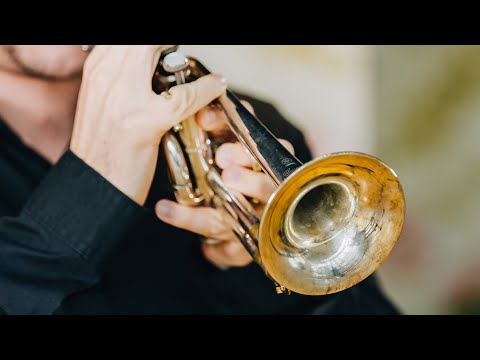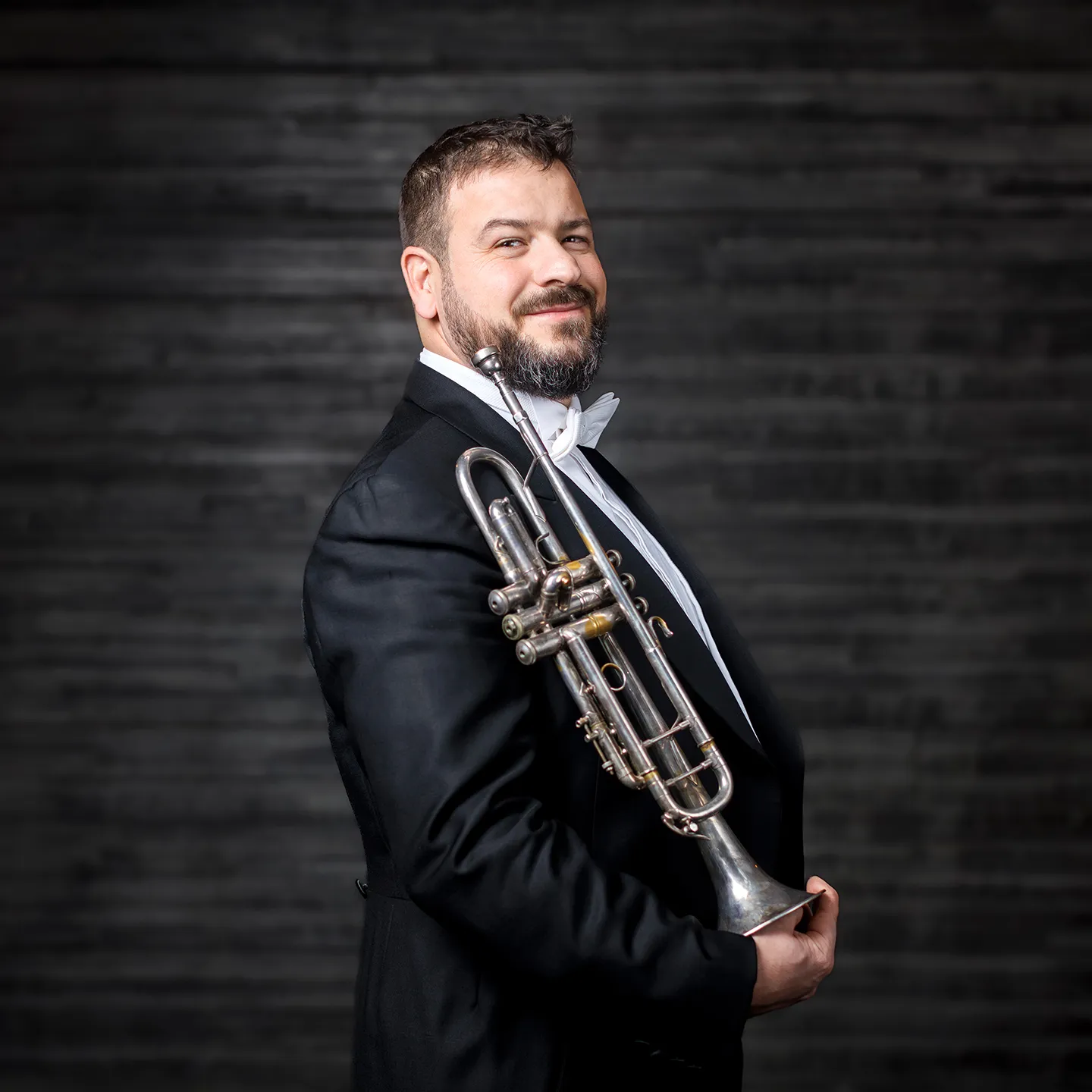
VIDEO: Konsertintroduktion inför Larsson & Lundquist
Malmö SymfoniOrkesters trumpetare Matteo Battistoni presenterar konserten Larsson & Lundquist.
Place of birth: Cesena, Italy
What year did you begin to play your instrument, and why that specific instrument? I started playing when I was 7 and a half in the marching band of the village next to mine. To be honest I didn't choose to start playing: it was a push from my grandmother Tina, who loved opera and music in general, who sent me with a family friend to the rehearsal of the band one evening of many years ago to try an instrument. Even the instrument was not my choice.. they had a trumpet that nobody used and they gave me in the hands that evening. I was lucky to have accepted that push and that instrument.
When did you begin to work in MSO? 2016
What does your educational background look like? My training took place with the traditional courses of study in the Italian music academies where I was so lucky to meet my first trumpet teacher (Renzo Brocculi), whom I consider as a father, who transmitted to me the love for music and my instrument but also the seriousness and dedication that I still try to remember today.
After graduating from trumpet I did masterclass end curses where I specialized and trained with great Italian trumpet players, but above all great musicians, like Andrea Lucchi, Marco Pierobon and Marco Braito who gave me their knowledge, skill and experience which I have kept with me as a memory.
I am grateful to everyone I met on my musical journey, whether they were teachers or colleagues, because I learned and understood something from everyone.
What is you favourite moment from your time in the MSO? Professionally speaking, the best memory was when I played Mahler's third symphony as first trumpet: it was a beautiful concert, very emotional. In general I have wonderful memories of the friendliest moments of the after-concert with my brass colleagues and of the mistakes I've made with them regarding my English and Swedish (I have collected many of these situations that are now the subject of laughter)
In what other orchestras/ensembles or other contexts have you worked? I started in 2003 with the Italian Youth Orchestra (OGI): I was 20 years old and I didn't know the world of orchestra so it was a great help to understand that word and learn how to approach the work, understand or, at least, try to understand classical and opera music and to learn to work in a group. My real career as an orchestral player began in 2004 with the Orchestra Sinfonica di Roma, where I stayed for 10 years: a beautiful, intense and very formative experience for me. During these 18 years of work I have also collaborated with various orchestras in Italy such as the orchestra of the Teatro dell'Opera di Roma, the Teatro Regio di Torino, the symphonic orchestra of the Accademia Nazionale di Santa Cecilia in Rome and other Italian musical realities.
Who is you favourite composer? Mahler and Brahms
What do you prefer to do in your spare time? I love spending time with my family and seeing our friends as much as possible. I really like to go to the forest with them to have fun and grill. A great passion I have is arranging small objects or doing small carpentry work myself, but I don't have much time available. My great love is for the motorcycles that I love to ride but I haven't done it for a few years now ..... I hope to get back to having one soon and to be able to use it.
What is your tip for activity in Malmö? Go to the museum of technology with the children, walk through the city parks and have fun in the many playgrounds there are.
What is your favourite food? Barbecue and Italian pasta (a preference for lasagna).
Why should everyone go and listen to symphonic music? I consider classical music a world in which all man's nature expresses itself to the fullest: all man's feelings, fears, aspirations, faith find a space, a language of expression that is potentially universal. I believe that classical music is a heritage for humanity but above all a living heritage, which speaks, which still responds to the heart of man.
